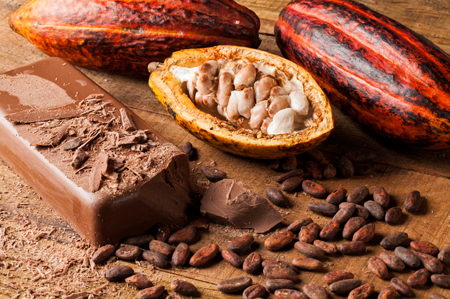Ivory Coast Cocoa Farmers Neglect Plantations As Price Drop Bites
Category: Cocoa
 (Reuters) – Cocoa farmers in top grower Ivory Coast are passing up fertilizer and pesticide treatments and are instead spending their reduced earnings this season on essentials like food, healthcare and school fees as a drop in world prices hits home.
(Reuters) – Cocoa farmers in top grower Ivory Coast are passing up fertilizer and pesticide treatments and are instead spending their reduced earnings this season on essentials like food, healthcare and school fees as a drop in world prices hits home.
The failure to invest in preparing plantations for the next season, which opens in October, risks making them vulnerable to pests and disease and could lead to reduced output.
“That’s not what interests me right now. I can’t focus resources on cocoa and let myself starve,” said Fulbert N’Guessan, who farms 10 hectares (25 acres) near the western town of Soubre. “So I prefer to keep the money for medicine, food and to pay for my children to go to school.”
Cocoa futures in New York and London have fallen by around a third since last year. The slide provoked a wave of export contract defaults in Ivory Coast that created a glut of beans that only served to drive prices down further.
Farmers said a minimum producer price of 1,100 CFA francs ($1.88) per kilogram, which is meant to be guaranteed by the Coffee and Cocoa Council (CCC), was largely ignored by buyers during the October-to-March main crop.
The CCC slashed the farmer price to 700 CFA francs/kg for the April-to-September mid-crop, but farmers told Reuters last week that they were still receiving only around 500 CFA francs/kg.
“I have debts from last year’s fertilizer. My cocoa didn’t sell well this season, so for me maintenance and treating my plantation with chemicals isn’t the most important thing,” said Benoit Djedje, who farms near the town of Duekoue.
Farmers in the regions of Soubre, Gueyo, Buyo, Kahin et San Pedro all similarly said they had not invested in fertilisers and chemical treatments against pests and disease.
Reuters spoke with 15 vendors of fertilizer and phytosanitary products in Ivory Coast’s western growing regions. None had reached more than a quarter of their turnover from last season.
“I’ve had the same stock for five months and I’ve told my supplier in Abidjan that I won’t take any more this year, because it’s just not working,” said Cheick Coulibaly, a fertilizer dealer in Bonon, in the region of Daloa.
Last season he said he replenished his stocks three times due to demand.
“I’m worried about this situation but I don’t know what the solution is. The farmers have nothing to buy fertilizer and other products with. That is dangerous for the next year’s production,” an Abidjan-based exporter told Reuters.

